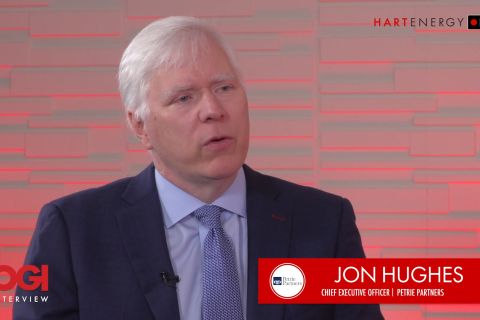Activist investment firm Elliott Management is pushing Canada’s Suncor Energy Inc. to add new board directors, overhaul management and begin a strategic review, arguing that its shares have lagged even as crude prices surged to multiyear highs.
U.S.-headquartered Elliott, which owns 3.4% of Suncor, called the company a leader in the Canadian energy industry but said performance has declined in recent years and noted it faces operational challenges and safety issues. Twelve employees and contractors have died in fatal accidents since 2014.
“Suncor’s status quo is not working,” Elliott partner John Pike and portfolio manager Mike Tomkins wrote to the board on April 28. “Our goal is to restore Suncor to what it once was: the leader of the Canadian energy industry,” the letter said.
The company said it will study Elliott’s recommendations and looks forward to engaging with the firm but added that it is “confident” in its strategy and “will continue to execute” on it.
Suncor’s stock price jumped 9.5% on the news and is now up 40% since January. Rivals Cenovus Energy and Canadian Natural Resources posted bigger gains since January. Over the past three years, Suncor’s share price has trailed Canadian Natural Resources by 137% and its oil sands peers by an average of 91%, Elliott said. The company is valued at $52 billion.
Elliott, which invests $51.1 billion in assets, blamed “a slow-moving, overly bureaucratic corporate culture” for Suncor’s problems and said it believes the share price could surge to $60 from $36.01 now, marking a 50% increase in shareholder value.
The investment firm is pushing for Suncor to add five new directors with expertise in the Canadian energy industry to the 11-member board and to boost capital returns after capital expenditures and dividends to more than 80% of discretionary cash flow from 50% now.
Elliott also wants a review of top executives to get the “right management” in place. Suncor promoted Mark Little to CEO in 2019 after Steve Williams retired.
Elliott last year launched 17 campaigns marking its most active year since 2018, data from Lazard show. It targeted companies including Twitter, Duke Energy, Citrix and Willis Towers Watson.
Recommended Reading
NOV's AI, Edge Offerings Find Traction—Despite Crowded Field
2024-02-02 - NOV’s CEO Clay Williams is bullish on the company’s digital future, highlighting value-driven adoption of tech by customers.
Hess Corp. Boosts Bakken Output, Drilling Ahead of Chevron Merger
2024-01-31 - Hess Corp. increased its drilling activity and output from the Bakken play of North Dakota during the fourth quarter, the E&P reported in its latest earnings.
The OGInterview: Petrie Partners a Big Deal Among Investment Banks
2024-02-01 - In this OGInterview, Hart Energy's Chris Mathews sat down with Petrie Partners—perhaps not the biggest or flashiest investment bank around, but after over two decades, the firm has been around the block more than most.
Petrie Partners: A Small Wonder
2024-02-01 - Petrie Partners may not be the biggest or flashiest investment bank on the block, but after over two decades, its executives have been around the block more than most.
Nebula Energy Buys Majority Stake in AG&P LNG
2024-01-31 - AG&P will now operate as an independent subsidiary of Nebula Energy with key offices in UAE, Singapore, India, Vietnam and Indonesia.





